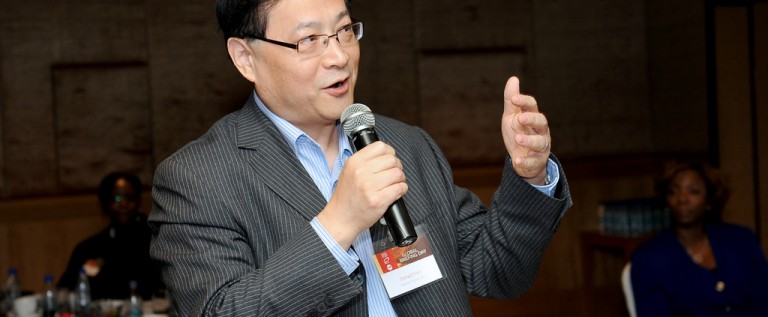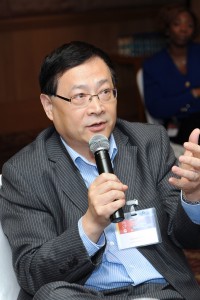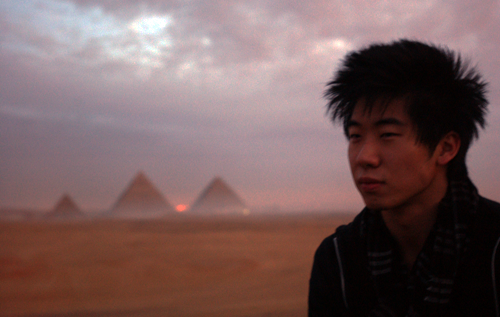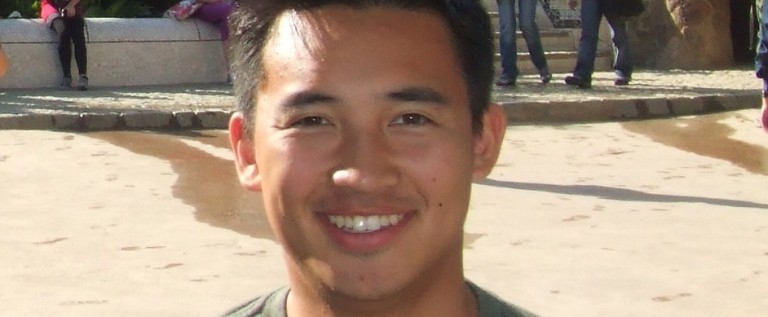Donald Fan on Wal-Mart’s Global Responsibility

Donald Fan currently serves as senior director in the Global Office of Diversity of Wal-Mart’s stores, Inc. He is responsible for the strategy development, marketing and communication, reputation management, identifying emerging trends and recommending best practices in diversity and inclusion arena.
SK: Donald, thank you for sharing your insights and success strategies with our readers. As the world’s largest retailer, Wal-Mart’s consumers and suppliers are diverse. Your vision is to be recognized as the global leader in diversity and Inclusion. Over 200 million people shop at Wal-Mart weekly. Consumers have high expectations for Wal-Mart. What is the most exciting part of your job? What are the challenges?
DF: We are dedicated to embracing and leveraging the power of diversity in our 2.2 million associates and fostering an inclusive workplace in order to maximize our talents, strengthen our customer relevance, and deliver innovative solutions to business challenges. That commitment, along with our strategy, ensures we will advance on the right track to become the global leader in diversity and inclusion.
Every morning before I head to work, I’m always inspired by this thought – what I’m going to do today will make a positive impact on our customers and our associates who trust us as their retailer and employer of choice.
The scale and size of the company offers each of us a unique opportunity to serve millions of people around the world and help them lift up their lives. I would say nothing is more exciting than that.
As for challenges – believe or not, being the world largest retailer with $466 billion net sales last year can be a challenge as well because there is no existing success model ahead of us that we can replicate and follow. We need to be the innovative pioneer and architect in almost every aspect of the business. How do we stay nimble and competitive? How do we foster next generation leaders? How can we transform the company from the biggest to greatest? How do we fundamentally impact the world beyond our four walls? These challenges along with our stakeholders’ expectations keep our minds churning.
SK: What advice would you give to young associates?
DF: In the article I wrote for MBA students “Bridging the Gap between Business School and Business World,” I introduced the bridge building analogy by breaking the corporate career into 3 building phases. I share it with my mentees as well because I feel it’s relevant.
Stage one: Engineer your bridge.
Envision and create a clear blueprint stamped with your personal passion and vision.
In this stage, you identify and reflect on what you stand for, what your values are, what matters most to you, and then select the right employer that aligns with your values and offers you an environment to bloom.
Stage two: Build your bridge. Now that you have your blueprint in mind, you are prepared to start construction. The right tools and resources will help you establish not only your place in the company, but also a voice that will be heard and respected from day one. It includes finding valued mentors, building a network, establishing a strong personal brand and becoming a subject matter expert – an anchor for your future career.
Stage three: Cross your bridge. Management is not as much a science as an art. Artistry triggers insight and vision based on intuition. By crossing the bridge to the career, you try to maintain the balance between science and art. At this stage, you strive to be indispensible. Continuous dissatisfaction with the status quo is the best way to keep growing. To become indispensable, you must think creatively and deliberately sharpen your judgment and decision-making skills to achieve innovative breakthroughs. To be successful in today’s business world you need to simultaneously lead and manage – know where you want to go (vision), what is most important (value), how you will get there (strategy), what success looks like (measurement), and then carry out the shared purpose with your team (execution).
SK: You came to the US in 1990 from China. Wal-Mart has a significant presence in Asia, including China, India, and Japan. Have you ever imagined back then that you will contribute in leading the global initiatives for Wal-Mart?
DF: I grew up in Shanghai, China. Before I came to the United States for my graduate studies in 1990, I was teaching college in China. My previous professional career centered on academia and I didn’t have any big corporate experience then. When I joined Wal-Mart in 1996, I wanted to build up some corporate experience. My plan at that time was to spend two years working at Wal-Mart to learn what kind of corporate culture drives Wal-Mart’s unprecedented business success. Since it was a short-term plan, I didn’t focus that much on climbing the corporate ladder. Now, after almost 17 years, I am still with the company and enjoying what I do day-in and day-out. It’s because of two magnetic powers that attract me: the corporate culture that matches my value system (respect, service, excellence) and a huge global platform where I can make a difference beyond my personal capability.

Photo courtesy of Donald Fan
By collaborating with our internal partners and country leaders, we have rolled out our diversity and inclusion initiatives, and facilitated them to develop customized plans that address market-specific challenges and leverage diversity and inclusion efforts to drive business growth.
SK: What is your definition of success?
DF: The title you have and money you earn don’t define success. Let me share with you one of my childhood memories that helped shape my definition of success:
When I was a fourth grader, one semester I scored a 95% on my math final. I felt pretty good since it was still an A. My father was a seasoned surgeon. He sensed something in me and had a serious discussion with me about the score. He questioned me first, “Why didn’t you achieve a 100, and do you know where you lost the 5 points?” He then explained to me that if you were a surgeon like him, that a 5 point miss could cost a life on the operating table or leave a patient with a life-long disability. If you look at it that way, the missing score is much bigger than it looks. He didn’t expect me to have 100% all the time, but he wanted me to not give up the learning opportunities to figure out the missing gap. He taught me that you have to dedicate 100% all the time. It is all about attitude. Your attitude impacts your behavior; your behavior shapes your habit; your habit determines your ambition; your ambition defines your success. My father passed away three years ago. That conversation is so vivid in my memory. It taught me that when you have a positive attitude and give 100% dedication to whatever you do, it leads you to success and gives you a sense of fulfillment. That is how I define success.
SK: What makes you happy? What is your ultimate goal in life?
DF: Dr. Tal Ben-Shahar taught Harvard University’s most popular course on Positive Psychology, teaching his students how to be happy. His philosophy about happiness is: “When you learn how to live for today and for tomorrow at the same time, you learn how to balance your immediate personal needs with long-term goals and enjoy life as you never have before.”
My happiness derives from 3 aspects of my life: provide my family a secure and safe harbor, become an impactful professional and make a difference in the community. The contributions I have made, and fulfillment I have for family, career and community always make me happy. Happiness then fuels further success. It’s up to us to reap the benefits of a happier mind to achieve the extraordinary in our work and in our lives. This belief determines my ultimate goals in life: live a happy life, have a successful career and be a life-long supporter to people around me.
Last week, at Catalyst’s Annual Awards Conference, Xerox CEO Ursula Burns shared with us one piece of her mother’s advice that sticks with her to this day, “Where you are is not who you are. Remember that when you’re rich and famous.” If you are not confused about who you are and know what you want, you’ll find happiness no matter where you live and whether you’re poor or rich.
SK: Thank you very much for meeting with us on the pages of ALIST magazine.
Wishing you a continued success!
Prior to his current role, Donald worked in Wal-Mart’s Information System Division with various technical and analytical positions for eight years.
Donald serves as a member of the Wharton Advisory Panel of Executives, University of Pennsylvania, Cornell University Executive Thought Leader Advisory Board and the Diversity MBA magazine Leadership Board.
Donald taught college in China before coming to the United States for graduate studies in 1990. Donald earned a Bachelor of Arts in English Literature and Master Degrees in Education.
Wal-Mart Stores, Inc. operates more than 4,600 Discount Stores, Supercenters and Neighborhood Markets, and Sam’s Clubs in the United States, with 1.4 million associates. Internationally, the company operates in 27 countries with over 6,000 business units and more than 780,000 associates.





